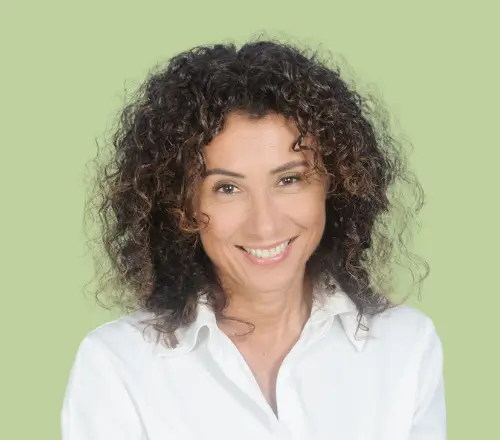Types of therapy
Body Dysmorphic Disorder
Body Dysmorphic Disorder (BDD) is an anxiety disorder where individuals become excessively preoccupied with perceived flaws in their appearance, often focusing on specific features like skin, hair, or body shape. This distress can be so severe that it interferes with daily life, social activities, and relationships.

What does BDD feel like?
Living with BDD often means spending hours worrying about appearance, feeling intense shame or anxiety, and engaging in repetitive behaviours like mirror checking or skin picking. This preoccupation can lead to avoidance of social situations and significant emotional distress.
How to overcome BDD with therapy
Therapy, especially cognitive behavioural therapy (CBT) with exposure and response prevention (ERP), is the most effective treatment for BDD. Medication such as selective serotonin reuptake inhibitors (SSRIs) may also be prescribed alongside therapy to reduce symptoms.
Through BDD counselling, you can:
Challenge negative thoughts about your appearance.
Reduce compulsive behaviours linked to appearance concerns.
Build healthier self-esteem and body image.
Learn coping strategies to manage anxiety and distress.
Step-by-step guide to managing BDD
Recognise symptoms: Acknowledge how appearance concerns affect your life.
Seek professional help: Consult a therapist experienced in BDD treatment.
Engage in CBT with ERP: Work on facing fears and stopping compulsive behaviours.
Consider medication: Discuss SSRIs with your healthcare provider if appropriate.
Build support: Involve trusted people to encourage progress and reduce isolation.
Types of therapy
Body Dysmorphic Disorder
Body Dysmorphic Disorder (BDD) is an anxiety disorder where individuals become excessively preoccupied with perceived flaws in their appearance, often focusing on specific features like skin, hair, or body shape. This distress can be so severe that it interferes with daily life, social activities, and relationships.

What does BDD feel like?
Living with BDD often means spending hours worrying about appearance, feeling intense shame or anxiety, and engaging in repetitive behaviours like mirror checking or skin picking. This preoccupation can lead to avoidance of social situations and significant emotional distress.
How to overcome BDD with therapy
Therapy, especially cognitive behavioural therapy (CBT) with exposure and response prevention (ERP), is the most effective treatment for BDD. Medication such as selective serotonin reuptake inhibitors (SSRIs) may also be prescribed alongside therapy to reduce symptoms.
Through BDD counselling, you can:
Challenge negative thoughts about your appearance.
Reduce compulsive behaviours linked to appearance concerns.
Build healthier self-esteem and body image.
Learn coping strategies to manage anxiety and distress.
Step-by-step guide to managing BDD
Recognise symptoms: Acknowledge how appearance concerns affect your life.
Seek professional help: Consult a therapist experienced in BDD treatment.
Engage in CBT with ERP: Work on facing fears and stopping compulsive behaviours.
Consider medication: Discuss SSRIs with your healthcare provider if appropriate.
Build support: Involve trusted people to encourage progress and reduce isolation.
Types of therapy
Body Dysmorphic Disorder
Body Dysmorphic Disorder (BDD) is an anxiety disorder where individuals become excessively preoccupied with perceived flaws in their appearance, often focusing on specific features like skin, hair, or body shape. This distress can be so severe that it interferes with daily life, social activities, and relationships.

What does BDD feel like?
Living with BDD often means spending hours worrying about appearance, feeling intense shame or anxiety, and engaging in repetitive behaviours like mirror checking or skin picking. This preoccupation can lead to avoidance of social situations and significant emotional distress.
How to overcome BDD with therapy
Therapy, especially cognitive behavioural therapy (CBT) with exposure and response prevention (ERP), is the most effective treatment for BDD. Medication such as selective serotonin reuptake inhibitors (SSRIs) may also be prescribed alongside therapy to reduce symptoms.
Through BDD counselling, you can:
Challenge negative thoughts about your appearance.
Reduce compulsive behaviours linked to appearance concerns.
Build healthier self-esteem and body image.
Learn coping strategies to manage anxiety and distress.
Step-by-step guide to managing BDD
Recognise symptoms: Acknowledge how appearance concerns affect your life.
Seek professional help: Consult a therapist experienced in BDD treatment.
Engage in CBT with ERP: Work on facing fears and stopping compulsive behaviours.
Consider medication: Discuss SSRIs with your healthcare provider if appropriate.
Build support: Involve trusted people to encourage progress and reduce isolation.
Recommended HeadHealth Therapists
Recommended HeadHealth Therapists
Click here to view all counsellors, therapists and psychotherapists.
Click here to view all counsellors, therapists and psychotherapists.
Francesca (Fran) is an experienced integrative counsellor and accredited member of the NCPS. Fran offers a warm and compassionate space for adults navigating life’s challenges, drawing on her background in education, inclusion, and over three years of therapeutic practice.
More
Online
Phone Call

Ruby is a integrative therapist with over 1,500 clinical hours. Ruby brings a warm, down-to-earth approach to therapy, supporting adults experiencing anxiety, stress, and relationship challenges through personalised, evidence-based care.
More
Online
Phone Call

Victoria is a compassionate and skilled person-centred counsellor qualified since 2012. Victoria has helped over 450 clients and offers a safe and supportive space for adults navigating challenges including trauma, anxiety, depression, addiction, personality disorders, and more.
More
Online
Phone Call

Tyrene is a person-centred counsellor with over 450 clinical hours. Tyrene is dedicated to supporting clients from all backgrounds, offering a warm, safe space for those facing anxiety, depression, relationship challenges, identity issues, and more.
More
Online
Phone Call

Romina is a warm and collaborative therapist with over 400 successful sessions delivered. Her integrative approach blends psychodynamic and humanistic methods, creating a flexible, compassionate space for clients to deepen self-understanding and navigate change at their own pace.
More
Online
Phone Call

Ready to Take the Next Step?
Complete our short referral form, and we’ll match you with a qualified therapist who’s the right fit for you.
Complete our short referral form, and we’ll match you with a qualified therapist who’s the right fit for you.

Stay in the
loop
Join our community of mental health specialists with our monthly newsletter.
Stay in the
loop
Join our community of mental health specialists with our monthly newsletter.
Stay in the
loop
Join our community of mental health specialists with our monthly newsletter.





